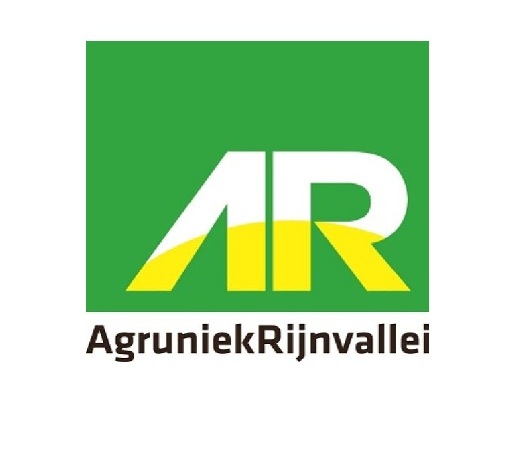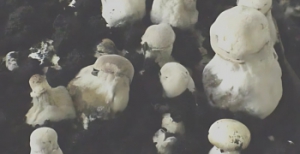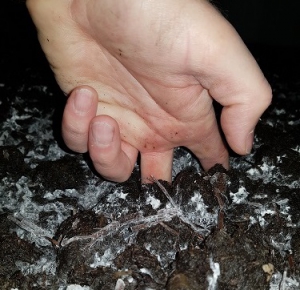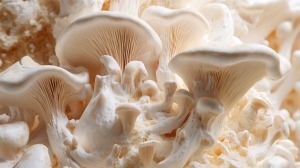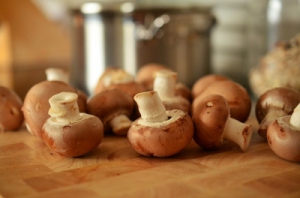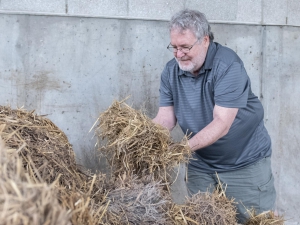
Mushroom Matter
Welcome on our platform. Why MUSHROOM MATTER? Because mushrooms play an important role in our lives as well in business. Our goal is to bring the world the very latest mushroom news with the upmost care to support the positioning of our beloved Mushroom.
AR neemt zowel de onderneming als de locatie van P.G. Kusters Land- en Tuinbouwbenodigdheden B.V. over.
J. Kusters Fruitteelt en Landentuinbouwcursussen.nl vallen buiten de overname.
Vergelijkbare focus
De huidige aandeelhouders van P.G. Kusters hebben geen opvolging en hebben daarom besloten de onderneming en de locatie te verkopen. John Kusters: “We kennen AgruniekRijnvallei Plant B.V. (AR Plant) al jaren en herkenden een vergelijkbare focus op kwaliteit en service. Dat zijn belangrijke factoren geweest in de keuze om ons familiebedrijf onder te brengen bij AR Plant en zo te zorgen voor continuïteit voor onze medewerkers en klanten.”
Wat houdt de overname in?
Omdat het tijd kost om alles zorgvuldig te regelen blijven de klanten van P.G. Kusters in eerste instantie zakendoen met P.G. Kusters en kunnen ze hun producten via de vertrouwde kanalen bestellen. De locatie in Dreumel blijft geopend. De vijftien medewerkers komen automatisch bij AR in dienst.
Uitbreiding portfolio en werkgebied
Door de overname van P.G. Kusters breidt AR zowel haar portfolio als werkgebied uit. Arjen van Nuland, algemeen directeur AR: “Ik ben blij dat P.G. Kusters Land- en Tuinbouwbenodigdheden nu onderdeel is van AR. Ze hebben een uitstekende reputatie. De komende periode gaan wij gezamenlijk aan de slag om de activiteiten van P.G. Kusters in onze organisatie te integreren. We doen er alles aan om de synergievoordelen te benutten.”
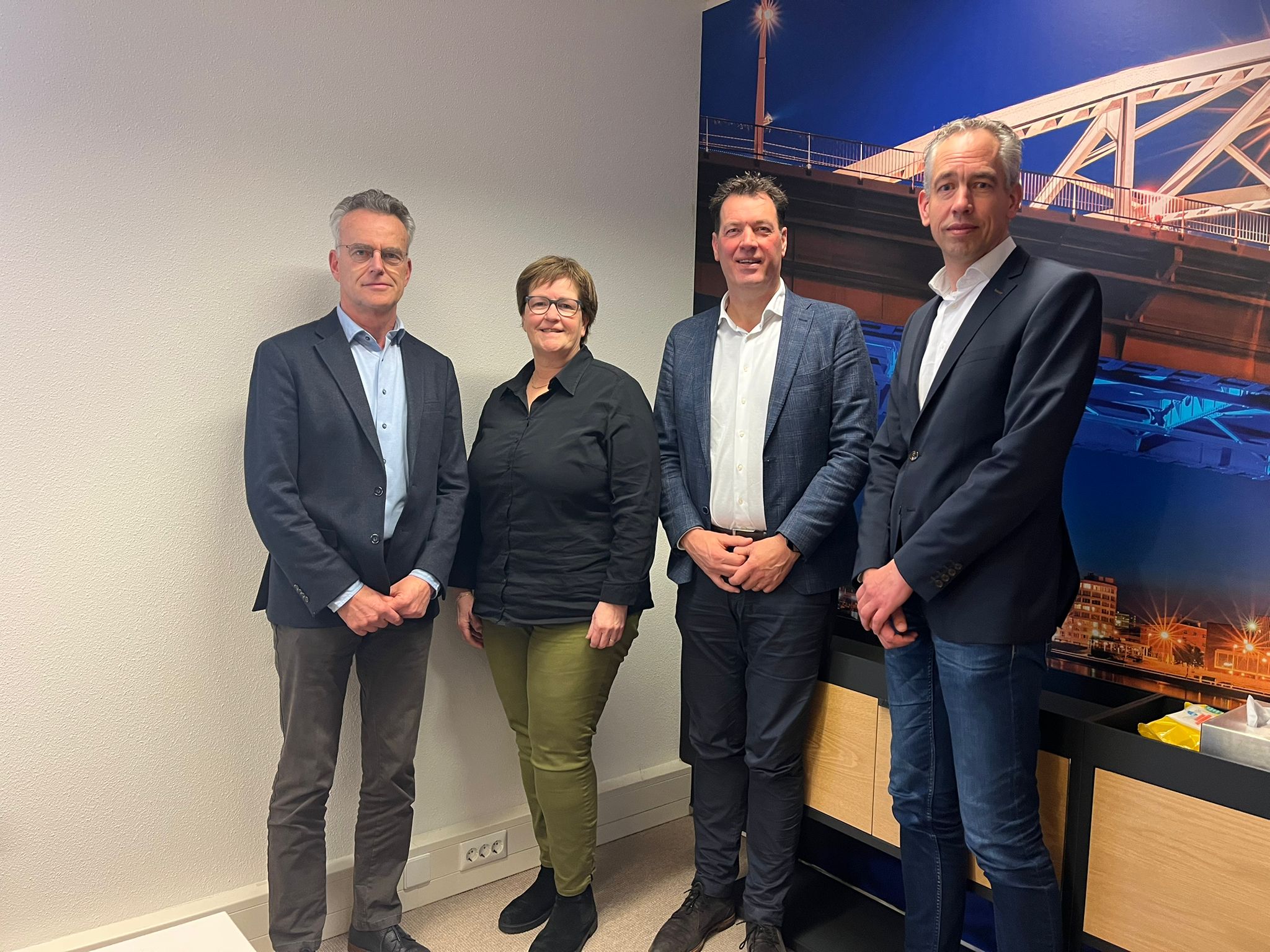
Op de foto van links naar rechts: John Kusters (algemeen directeur P.G. Kusters), Silvia de Vree-Kusters (financieel directeur P.G. Kusters), Arjen van Nuland (algemeen directeur AR) en Richard ter Beek (algemeen manager AR Plant).
Dry bubble disease fact sheet
Dry Bubble Disease is a common fungal disease of the commercial white and brown mushroom Agaricus bisporus. Understanding more about the biology of the fungus that causes Dry Bubble Disease may help growers control this disease. With the difficulty in obtaining new or maintaining existing pesticide registrations, the struggle to control this disease will continue for many years. This fact sheet aims to give growers basic biology and practical information about this disease.
Read the full factsheet here.
By David M. Beyer, Penn State University
We are very happy to announce David M. Beyer, Professor of Mushrooms, to our platform. To start, David briefly explains about his background and involvement in the mushroom industry.
For almost 45 years I have been involved in the mushroom industry, first and always as a student of mushroom science and then as a commercial mushroom grower.
I worked 12 years growing mushrooms at the largest mushroom company in Canada with a tray farm, 3 shelf farms and a Dutch-style bulk tunnel farm. As Director of Growing, I provided technical assistance and training to the growers at all 5 farms.
For the past 34 years I have worked at Penn State as the director of the mushroom extension program for the North American commercial mushroom industry. My previous commercial growing experience provides practical insight into the development and organization of my educational programs that address the changing needs of the industry.
My research program involves all aspects of mushroom growing from composting, compost nutrition for the mushroom, disease management (IPM), and cultural factors affecting mushroom yield, size, and quality. I have developed and conducted several customized grower educational programs for mushroom farms and suppliers.
Casing soil
Why is casing soil used? There are two main reasons: 1. the Pseudomonas putida bacterium; 2. to regulate evaporation. Mushrooms will not grow without evaporation. The casing soil structure, through the depth of casing and on the surface, is the factor that determines how much water can absorbed and released. This is also known as the water buffer. How can growers influence this effect?
Properties
Casing soil is made up of peat. Peat consist of many small and larger pores which act as communicating structures that affect the flow of water. The very tiny (micro) pores absorb water very slowly, but retain it for a long time. The larger (macro) pores can absorb water faster but release it again very quickly. In good casing soil, both properties are necessary: rapid absorption of water: during mycelium growth and after harvesting, and slow release: during pinhead formation and out grow, and when the mushrooms are harvested.
Air
What is the secret of casing soil? Ensure that the moisture content of the casing soil is good. With “export” casing soil, you have to apply enough water and mix the casing with a loader or bobcat. Ask the supplier for instructions and follow them correctly. This has already been done with casing soil delivered in bulk and ready to use. Casing soil is sensitive to structure loss just before it is applied. If the casing soil is compacted or compressed, the “air” will be squeezed out. This effectively closes off the very crucial micro pores. The casing soil will feel harder. During transport and filling avoid compacting the casing soil too much, for example when using augers, over-filling the hopper on the filler or in front of the levelling axle during filling.
Soft
Casing soil should feel nice and soft. Straight after filling, push your finger into the casing soil. You should be able to plunge your finger in easily and without resistance. Experience will teach you how to feel the difference. A good layer of casing soil after filling is about 6 cm thick. The amount ordered is much less, around 4.5 cm. The rest is air, and these air pockets can largely be filled with the water necessary for the mushrooms to grow!
Mark den Ouden
Mushroom Office
Master class course Mushroom composting and growing is 18 – 23 February, there are still some seats available! Please contact This email address is being protected from spambots. You need JavaScript enabled to view it. ASAP if you want to join! Next course will be 29 April – 4 May.
In 2014, with the joint efforts of the leaders of China and Fiji, the China-Fiji Juncao Technology Demonstration Center was established. Nine years later, the China-Pacific Island Countries Juncao Technology Demonstration Center (CPICJTDC) was unveiled in Fiji.
"The giant Juncao grass grows amazingly. It gets 5 to 8 centimeters taller per day in November," said Lin Xingsheng, team leader of the China-Fiji Juncao Technology Demonstration Center. "We have built a modern agricultural science and technology park covering an area of 3 hectares, integrating the 'plant-fungi-animal' cycle. In addition, there is also a breeding base of about 10 hectares for Juncao seeds," Lin added.
The Chinese technical personnel at the demonstration center actively explored and, based on the local climate and soil conditions, cultivated a variety of mushrooms using high-quality Juncao grass as nutrients, bringing tangible benefits to local farmers.
The establishment of the demonstration center has ended the history of Fiji's inability to grow mushrooms, making mushroom cultivation an emerging industry for prosperity, said Ateleni Kaloumaira Vuinakelo, area field officer from Fiji's Ministry of Agriculture and Waterways, who closely collaborated with Chinese experts in 2012 to introduce Juncao technology to Fiji.
Under the careful guidance of Chinese experts, the Fijian people gradually mastered the skills of cultivating over 10 varieties of edible mushrooms such as oyster mushrooms, Ganoderma lucidum, and termite mushrooms, leading to a significant increase in income.
Read the full article here.
As winter fast approaches, consumers begin to adorn themselves with warm jackets and rejoice in the cheer of the festive period. However, a powerful sense of dread can often creep into the minds of many during this time as a torrent of coughing and spluttering commuters threaten to ruin their fun. However, there may be a hope for these would-be revellers as many nutraceuticals have shown significant promise in terms of supporting immune health, even during the dreaded flu season.
Currently, there is a huge range of functional ingredients that has been proven to promote immune health, including biotics, botanicals and vitamins. However, there’s one group of nutraceuticals that has been growing in popularity in this area in recent years, and that’s mushrooms.
Although mushrooms have been used for centuries in natural medicine, scientists have recently discovered their potential to support gut health, cognition and concentration. Further research has also highlighted the potential of functional mushrooms to boost immune health, whether that be through dietary intake or via supplements. To find out more about potential of fungal species in the immune health space, Annabel Kartal-Allen spoke to Bill Chioffi, Chief Operating Officer at Nammex.
Source: NBR Magazine
A TEESSIDER is Britain’s new karting king – less than three years after taking up the sport.
Middlesbrough’s Hassan Zafar was crowned British Indoor Karting Champion, beating over 5,000 competitors to the title.
The achievement is even more remarkable given Hassan’s first time behind the wheel came at the end of 2021 when he visited the TeamSport track in Stockton.
Now the 21-year-old has found himself in pole position for further glory after securing a tasty sponsorship deal with a firm determined to help make the sport a bit greener.
“I visited TeamSport’s indoor track in Portrak Lane for a bit of fun and never in my wildest dreams did I think that three years later I’d be British champion,” said Hassan, from Normanby. “A few months after my visit I realised that I was actually pretty good. TeamSport had a membership session where I could race against better drivers, and competing against them really brought the best out of me. “Everything has since just snowballed to the point where I was competing at an incredibly high level – and winning. “I’m absolutely over the moon, it was a genuinely amazing feeling when I realised I’d won it and the buzz I get from karting is out of this world.” And despite karting’s gas-guzzling reputation, Hassan has secured a major sponsorship with a company determined to tackle global warming.
Plant-based manufacturer Myco is the brains behind a pioneering protein called Hooba. The oyster mushroom-based protein is crafted using one of the most sustainable production methods in the food industry – leading to their quarter pounder being dubbed ‘Britain’s Greenest Burger’. For Hassan, who often eats a vegan-friendly diet, the North Yorkshire food firm is helping to fuel his rise in the rankings – while the firm’s CEO, David Wood, is keen to help develop the sport. “Karting, and motor racing in general, has never had a great reputation for sustainability but that’s definitely starting to change,” added David. “At TeamSport, where Hassan learned his craft, the business has really pushed the environmental envelope by converting some of their tracks to cater for electric vehicles and that’s the sort of innovative approach that has attracted us to get involved in karting. “At Myco, our approach is also driven by innovation – our production site is the most unique in the UK and we are focused on working with the meat industry, not against it – to find sustainable solutions to lowering meat consumption and tackling the climate crisis. “That’s why we are so thrilled to support Hassan.”
For more information on Myco and Hooba, please visit their website.
Source: Myco
For almost 45 years I have been involved in the mushroom industry, first and always as a student of mushroom science and then as a commercial mushroom grower.
I worked 12 years growing mushrooms at the largest mushroom company in Canada with a tray farm, 3 shelf farms and a Dutch-style bulk tunnel farm. As Director of Growing, I provided technical assistance and training to the growers at all 5 farms.
For the past 34 years I have worked at Penn State as the director of the mushroom extension program for the North American commercial mushroom industry. My previous commercial growing experience provides practical insight into the development and organization of my educational programs that address the changing needs of the industry.
My research program involves all aspects of mushroom growing from composting, compost nutrition for the mushroom, disease management (IPM), and cultural factors affecting mushroom yield, size, and quality. I have developed and conducted several customized grower educational programs for mushroom farms and suppliers.




